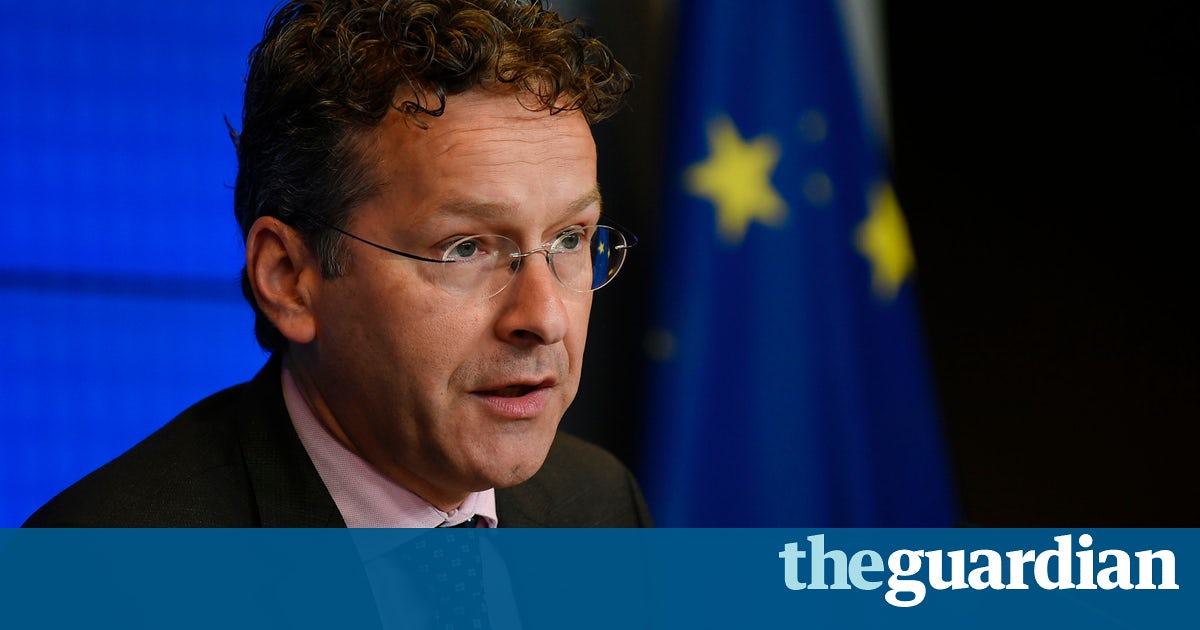Creditors agree terms to disburse Greece’s 8.5bn bailout funds

EU and IMF thrash out deal following months of disagreements, with funds to be released in July once European parliaments ratify the deal.

For the best part of a decade, Greece has wanted to become a normal country, and late on Thursday it appeared to begin that process, after creditors agreed to disburse 8.5bn (7.4bn) of bailout funds aimed at putting the debt-stricken nation back on the road to recovery.
The money, signed off after months of disagreement between the European Union and International Monetary Fund over how to reduce Athens’ staggering debt pile, will be released in July, once European parliaments ratify the deal.
Around 7.4bn will be initially disbursed so that Greece can honour debt repayments that mature mostly to the European Central Bank. The rest will be handed over once creditors are satisfied that the nation has complied with reforms.
“I am pleased to announce that we have achieved an agreement on all elements,” Eurogroup head Jeroen Dijsselbloem announced after a meeting of eurozone finance ministers in Luxembourg. The 19-nation bloc, he said, had also agreed that Greece could get further help with making its debt sustainable, including the possibility of extending repayments by 15 years and linking them to growth rates.
The deal though far short of the debt forgiveness prime minister Alexis Tsiprass leftist-led government had hoped for was greeted with jubilation. “There is now light at the end of the tunnel, the finance minister,” Euclid Tsakalotos, told reporters, insisting that it provided the clarity Athens had long sought. We didn’t want the perfect to be the enemy of the good.
The government said Greece had finally got what it wanted in the form of a clear commitment that Athens would complete its current bailout programme next summer and ultimately retap capital markets. Lenders had also agreed to reduce the primary budget surplus from 3.5% to 2% as of 2023.
The ECB, whose stimulus programme the recession-hit country has been yearning to join, also applauded the deal. “We take note of the Eurogroup discussion, which we see as a first step towards security debt sustainability,” said a spokesperson.
But it fell short of saying when, or if, Greece could join the quantitative easing programme that the Frankfurt-based ECB has emphatically linked to the country’s vast 324bn debt mountain (the equivalent of 180% of GDP) being rendered manageable.
[AdSense-A]
Without that, Athens is unlikely to achieve market access any time soon: a negative sign for investors who would view the country’s return to capital markets as evidence that after eight years of economic crisis and gruelling austerity the worst is behind it. Outside investment is seen as vital to Greece recouping some of the 27% loss in GDP it has suffered since its ordeal through bankruptcy began.
The IMF managing director Christine Lagarde described the deal as being the second best solution. While it had averted a credit default and renewed crisis given the scale of debt repayments looming next month it had not achieved the IMFs overall aim of making Greece’s debt load sustainable.
As such the Washington-based IMF would agree to back the bailout programme in principle via a stand-by arrangement, but would only contribute around $2bn (1.5bn) to it once the eurozone could commit to debt relief. The agreement, she said, had allowed more time for those discussions to continue.
Germany, the main contributor to the 300bn in funds the thrice-bailed-out nation has received since its first rescue programme in May 2010, had made IMF participation a condition of additional disbursements.
While the breakthrough now puts any talk of Greece’s ejection from the single currency to rest – and will be met with relief in EU capitals it had barely been announced before seasoned Greece watchers were denouncing it as a fudge, once again aimed at kicking the can down the road.
The Tsipras government had legislated a slew of extra austerity measures worth 4.6bn in savings in the hope of convincing creditors to finally give the Greek economy real breathing space through debt relief. Thursday’s deal is unlikely to please many in his leftist Syriza party who had accepted to support the unpopular budget-cutting policies to be enacted once the current three-year bailout programme ends in August 2018 only on the condition that debt relief would be achieved.
Although the economy is growing again, more than a third of Greeks are estimated to be at risk of poverty.
Despite detente between the creditors, the IMF and the eurozone are likely to remain at odds over the long-term prospects for the Greek economy. IMF officials do not believe EU assumptions that Greece can run a budget surplus (minus debt servicing) of 3.5% for years to come.
The IMF is not calling for Greek debts to be cancelled but wants to ease terms, by extending repayment holidays and deadlines. Creditors agreed on short-term debt relief last year, but the IMF had been pressing for specifics on the long-term. It has previously warned that Greece’s debts could spiral to 250% of GDP by 2050 without help.
Additional reporting Jennifer Rankin in Brussels